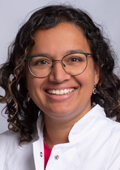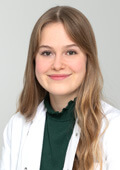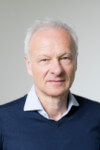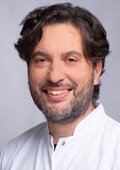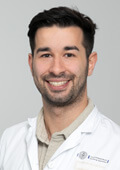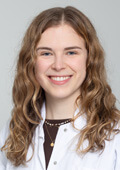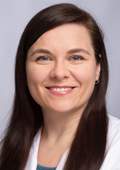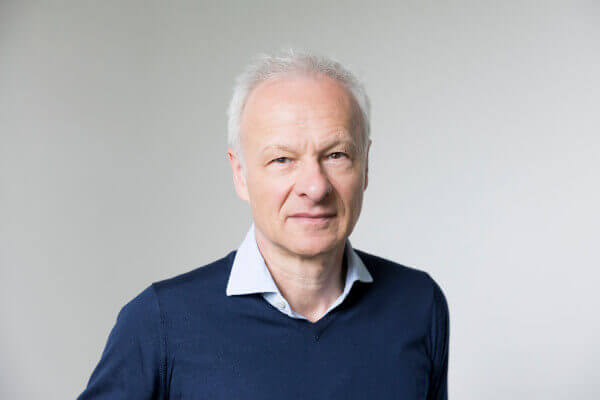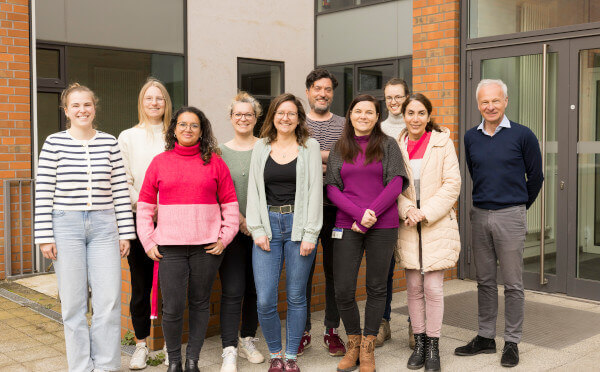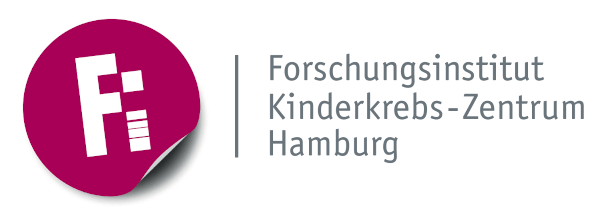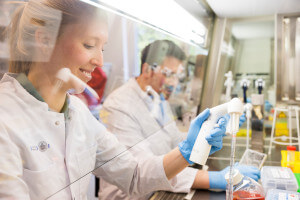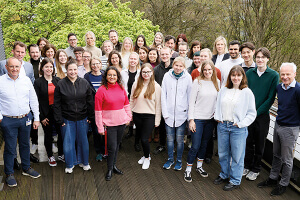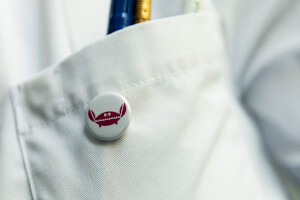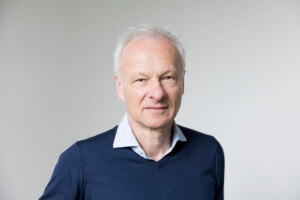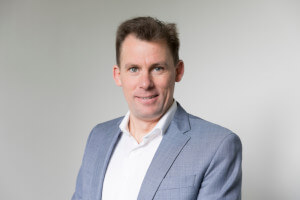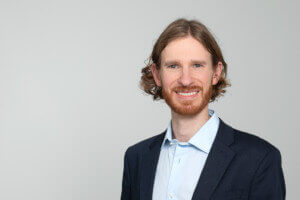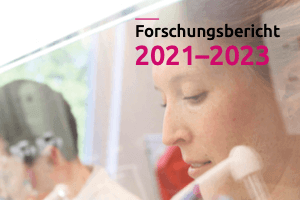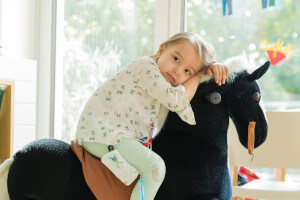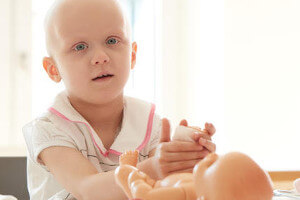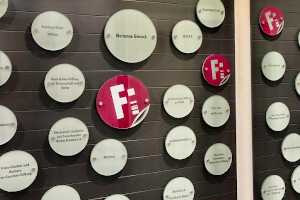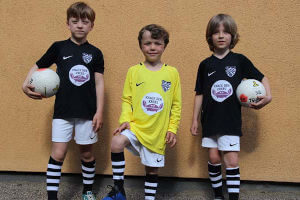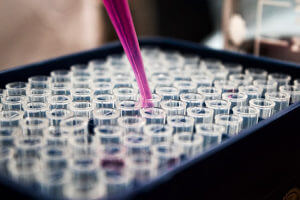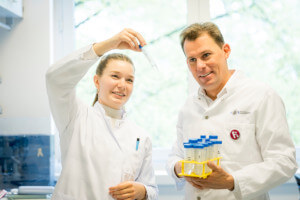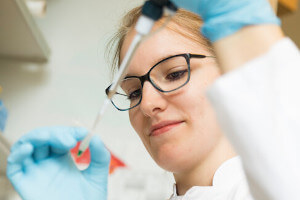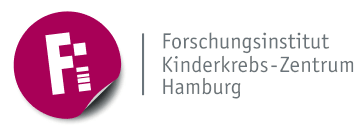Leukemias
Mechanisms of leukemogenesis and innovative treatment of acute lymphoblastic leukemia
Horstmann Research Group
The main research field of Prof. Dr. Martin Horstmann's group is transcription and its regulation in childhood cancers, in particular acute lymphoblastic leukemia. Martin Horstmann's team pursues pertinent disruptions in transcriptional and signaling processes in tumor cells that contribute to the inititation and progression of disease. His group is also interested in innovative strategies of widely applicable cellular immunotherapy for high-risk leukemias.
Acute lymphocytic leukemia (ALL) is the most common type of cancer in children. One of the most characteristic hallmarks of ALL is that B or T progenitor cells fail to complete their functional maturation process. This stagnation in maturation is mostly caused by genetic changes in transcription factors that orchestrate cellular differentiation, such as NOTCH1, PAX5, Ikaros (IKZF1), E2A, or early B-cell factor 1 (EBF1). The latter has been shown to be a crucial regulator of early B-cell development, which is frequently inhibited in ALL by its antagonist zinc finger factor 423 as previously demonstrated by the Horstmann group.
Transcriptional disorders in hematopoiesis not only affect cell maturation, but also genomic stability. The research group led by Martin Horstmann is working on the functional consequences of transcriptional insufficiency in cell cycle control, which can be associated with replication stress and mitotic disorders.
Together with his team, Professor Martin Horstmann seeks to establish a variant cellular immunotherapy applicable to a wide spectrum of children with high-risk ALL. The approved CAR T-cell therapy (chimeric antigen receptor T-cell therapy) requires the patient's own T cells, which however poses a challenge in regard to yield and logistics within the framework of anti-leukemic chemotherapy. To circumvent this obstacle, researchers in Horstmann’s group reprogram pluripotent stem cells from anonymous volunteer donors to differentiate into immune cells in the laboratory. In this process, gene-modified natural killer (NK) cells are created which can be applied across tissue type barriers to any diseased recipient. Targeted genetic modifications are made to the natural killer cells to increase the targeting precision and endurance of the immune cells.
Under the direction of Dr. Peter Nollau, specific CAR T cells targeting glycan molecules are being developed for cancer therapy. Sugars (glycans) attached to proteins on the cell surface play a key role in intercellular communication. Dendritic immune cells can use such complex sugar patterns (glycosylation) to distinguish pathogens from the body's own cells. Cancer cells also form sugar structures that distinguish them from healthy cells and can thus serve as a therapeutic target. In order to target modified sugar structures, so-called glycoreceptors instead of usually used antibodies are incorporated into T cells as chimeric antigen receptors (CAR).
Following his studies of medicine in Marburg and Münster, in 1988 Martin Horstmann earned his PhD in medicine at the University of Münster Medical School. As a physician, he began his research activities in the Institute of Pathology, University of Cologne and completed his advanced clinical training in pediatrics, specializing in pediatric hematology, oncology, and stem cell transplantation at the University Medical Center Hamburg-Eppendorf.
His research activities at the Dana Farber Cancer Institute and at Harvard Medical School in Boston, USA, from 1997 to 2000 formed the basis for his current research. Following his return to Germany, he worked as a physician and researcher at the University Medical Center Hamburg-Eppendorf. His research activities focus on the biology of acute childhood leukemia and on the fundamental mechanisms of cellular communication and transcriptional regulation in tumor diseases. The objective of this research is to achieve a new molecular understanding of the pathogenesis of the disease, which will flow into the diagnosis, risk-adapted treatment and prevention of cancer diseases. In 2006 he became head of the newly founded Research Institute Children’s Cancer Center Hamburg. In the following year he was appointed Professor of Molecular Hematology and Oncology of the Faculty of the University of Hamburg. As a scientist and practicing clinical physician, he works at the interface between the research institute and the hospital.
Deutsche Forschungsgemeinschaft
Europäische Union
Deutsche Krebshilfe
Deutsche José Carreras Leukämie-Stiftung e.V.
Erich und Gertrud Roggenbuck-Stiftung
Madeleine Schickedanz-Kinderkrebs-Stiftung
Wilhelm Sander-Stiftung
Bundesministerium für Bildung und Forschung
Iglesias P, Puller AC, Seoane M, Spohn M, Raasch S, Klokow M, Müller J, Burkhardt L, Indenbirken D, Horstmann MA. Genome-wide interference of ZNF423 with B-lineage transcriptional circuitries in acute lymphoblastic leukemia. Blood Adv. 2021 Mar 9;5(5):1209-1223. doi: 10.1182/bloodadvances.2020001844.PMID: 33646306
Blaeschke F, Willier S, Stenger D, Lepenies M, Horstmann MA, Escherich G, Zimmermann M, Ringeling FR, Canzar S, Kuferle T, Rohlfs M, Binder V, Klein C, and Feuchtinger T. Leukemia-induced dysfunctional TIM-3+CD4+ bone marrow T cells increase risk of relapse in pediatric B-precursor ALL patients. Leukemia 2020 Oct;34(10):2607-2620. doi: 10.1038/s41375-020-0793-1
Seoane M, Buhs S, Iglesias P, Strauss J, Puller A-C, Müller J, Gerull H, Feldhaus S, Alawi M, Brandner JM, Eggert D, Du J, Thomale J, Wild PJ, Zimmermann M, Sternsdorf T, Schumacher U, Nollau P, Fisher DE, Horstmann MA. Lineage-specific control of TFIIH by MITF determines transcriptional homeostasis and DNA repair. Oncogene 2019 May; 38(19):3616-3635. doi: 10.1038/s41388-018-0661-x. [Epub ahead of print]
Siekmann IK, Dierck K, Prall S, Klokow M, Strauss J, Buhs S, Wrzeszcz A, Bockmayr M, Beck F, Trochimiuk M, Gottschling K, Martens V, Khosh-Naucke M, Gerull H, Müller J, Behrmann L, Blohm M, Zahedi RP, Jeremias I, Sickmann A, Nollau P, Horstmann MA. Combined inhibition of receptor tyrosine and p21-activated kinases as a therapeutic strategy in childhood acute lymphoblastic leukemia. Blood Advances 2018 Oct 9;2(19):2554-2567. doi: 10.1182/bloodadvances.2018020693. PMID: 30301811
Witkowski MT, Hu Y, Roberts KG, Boer JM, McKenzie MD, Liu GJ, Le Grice OD, Tremblay CS, Ghisi M, Willson TA, Horstmann MA, Aifantis I, Cimmino L, Frietze S, den Boer ML, Mullighan CG, Smyth GK, Dickins RA. Conserved IKAROS-regulated genes associated with B-progenitor acute lymphoblastic leukemia outcome. J Exp Med 2017.
Homminga I, Langerak A, de Laat W, Klous P, de Rooi JJ, Stubbs A, Buijs-Gladdines J, Kooi C, van Vlierberghe P, Ferrando A, Cayuela JM, Blanchet O, Verhaaf B, Beverloo HB, Horstmann M, de Haas V, Pieters R, Soulier J, Sigaux F, Meijerink JPP. NKX2-1 and MEF2C oncogenes delineate novel subtypes in T-cell acute lymphoblastic leukemia. Cancer Cell 2011, 19, 484-497.
Gesamtverzeichnis der Publikationen: Pubmed
